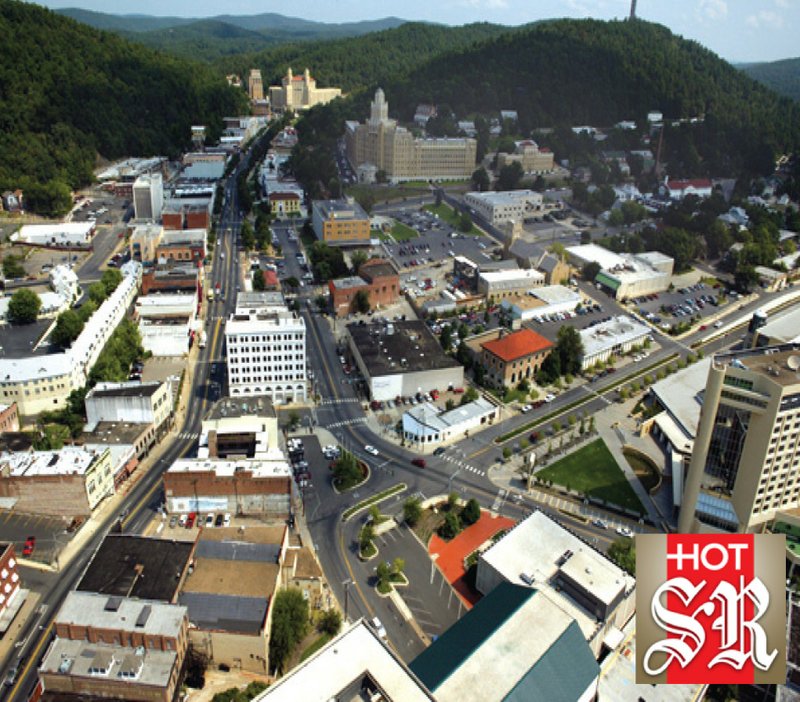The city is still waiting to absorb the lake-adjacent lands comprising Lake Hamilton and Lakeland drives and Buena Vista Road two years after the Hot Springs Board of Directors adopted the ordinance annexing 621 acres known as Enclave Study Area B.
Friday was the two-year anniversary of the board's action, and April 1 will mark two years since the annexation was scheduled to take effect. The city said last week it is hopeful a resolution will be reached by the summer in the lawsuit that has put the annexation on hold.
Arkansas Municipal League attorneys filed a brief on the city's behalf earlier this month in the appeal the plaintiffs brought in April with the state Court of Appeals. The appellants, collectively known as Opponents of Ordinance 6121, petitioned the higher court to review Division 1 Circuit Judge John Homer Wright's dismissal of the lawsuit last January.
The state Supreme Court decreed residents of annexed lands are not entitled by the Constitution to vote on an annexation measure in affirming Wright's dismissal of another lawsuit challenging the Area B annexation.
Enclaves are areas surrounded by cities that the Legislature has empowered municipalities to annex by a majority vote of their governing bodies. The city board adopted the Area B ordinance under the statutory provision that broadened enclaves to include land bound by corporate limits on three sides and a lake or a river on a fourth.
The plaintiffs in the pending lawsuit offered to forego an appeal in March in exchange for the city repealing the enabling ordinance. The city declined, and the appeal was filed the following month.
The brief the Municipal League filed earlier this month continues to assert that the city complied with the annexation statute, specifically that the Area B action was properly coordinated with the state's geographic information system office. The appellants have argued the city's initial contact with the GIS office Jan. 20, 2016, two days after the enabling ordinance was adopted, shows the city is in violation of the coordination requirement.
The annexation statute stipulates coordination shall take place "before an entity undertakes an annexation," but the city's brief argues the ordinance did not become valid until the 30-day period for collecting signatures in support of a referendum petition concluded Feb. 18.
The brief said the scheduled "undertaking" of the annexation was April 1, the date when city services would be extended to the area.
"To assert that undertaking occurred two months before the city would have even begun providing services to the annexed area is akin to saying a trip begins when you start to pack your bags," the brief said. "By the appellant's logic, the city was required to contact GIS before it thought about annexing 'Enclave B,' because, after all, the process of doing something begins with the idea to do it."
The appellants' brief references a July 2016 email the city sent the GIS office prior to the board's consideration the following month of a resolution scheduling a public hearing for the prospective annexation of a Lakeside Road enclave. The brief said the email, sent in advance of the resolution appearing on the board's agenda, shows the city thought it was necessary to begin coordination prior to the adoption of the annexation ordinance.
"As this evidence shows, the city began coordinating with Arkansas GIS prior to even passing the resolution to fix a date and time for a public hearing on the annexation, a tacit admission that passage of such resolution would be 'undertaking' annexation," the brief said.
The plaintiffs also argue the city violated the annexation statute by preventing people from speaking during a public hearing two weeks prior to the ordinance's adoption. The board chambers in City Hall was at fire code capacity, causing the fire department to direct people from the room.
"Appellants assert that if the number of people who wished to appear at the public hearing exceeded the lawful limits of the room in which the city chose to hold the hearing, the reasonable and required action is to postpone and/or move the public hearing to a venue that would accommodate all of those who wish to appear," the appellant brief said.
"Otherwise, a city could schedule its public hearings in a small room for the purpose of preventing people from appearing at the hearing under the guise of public safety."
The city responded in its brief that, save an affidavit from one of the appellants, no proof has been offered in support of the claim that people who wanted to speak were denied the opportunity.
"(The appellant) offers no explanation for his impressive knowledge of what other people think and want, likely because his ability to discern what others intended and desired to do must have come from an out-of-court statement now offered to prove the truth of the matter asserted," the city's brief said.
Local on 01/23/2018